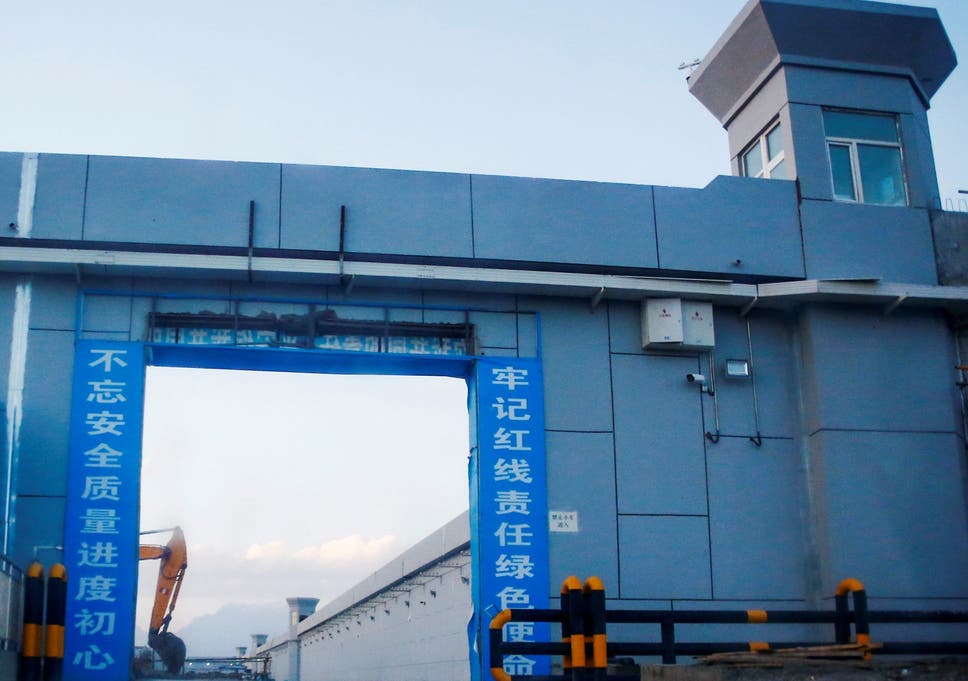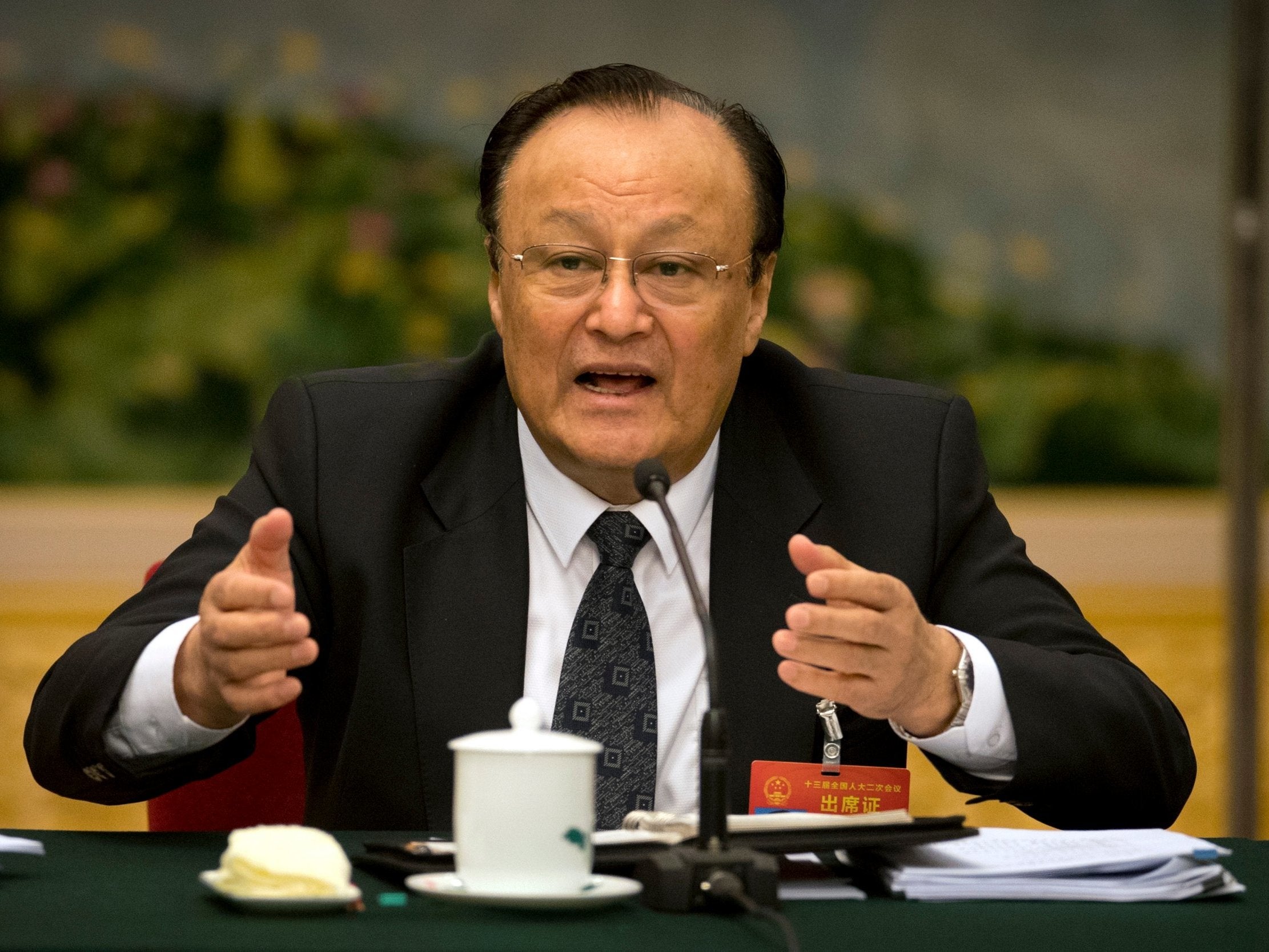
China has denied it is running “concentration camps” in the far western region of Xinjiang and has instead claimed the buildings are “boarding schools”.
The country has faced calls to close what it says are vocational training centres in the province which is home to millions of Uighurs and other Muslim ethnic minorities.
The United States called conditions the facilities “completely unacceptable”.
Activists claim more than a million people are being held in mass detention camps in the region as part of a crackdown which Beijing says is needed to stem the threat of Islamist extremism.
Xinjiang governor Shohrat Zakir said there had not been any violent attacks in more than two years and three months since the government adopted “a series of measures” to combat terror and extremism.
He told a parliamentary briefing earlier this week: “Some international voices say Xinjiang has concentration camps and re-education camps. These kinds of statements are completely fabricated lies, and are extraordinarily absurd.”
Mr Zakir said the facilities were “the same as boarding schools” and that the personal freedoms of the “students” were guaranteed.
The US government has weighed up sanctions against senior Chinese officials in Xinjiang. Chen Quanguo, the region's most senior Communist Party official could be among those targetted.

Mr Quanguo, who attended what was one of the most eagerly anticipated briefings of China’s parliamentary session by foreign media, did not answer questions on the camps.
Former detainees, however, have given accounts claiming to have been tortured during interrogation at the camps, and to have lived in crowded cells and been subjected to a brutal daily regimen of party indoctrination that drove some people to suicide.
They have also claimed they were forced to consume pork and alcohol while inside.
US officials have claimed China has made many aspects of religious practice and culture criminal in Xinjiang, with punishments being handed out for teaching Muslim texts to children and parents banned from giving their children Uighur names.
Academics and journalists have documented grid-style police checkpoints across Xinjiang and mass DNA collection, while human rights advocates have decried martial law-type conditions there.
Shortly after Chen Quanguo took the top post in Xinjiang in 2016, mass “anti-terror” rallies were conducted in the region’s largest cities involving tens of thousands of paramilitary troops and police.
United Nations human rights chief Michelle Bachelet is seeking access to China to verify continuing reports of disappearances and arbitrary detentions, particularly of Muslims in Xinjiang.
US ambassador for religious freedom Sam Brownback said the situation in Xinjiang was “completely unacceptable” and that sanctions against Chinese officials under the Global Magnitsky Act remained a “possibility”.
This would give the US executive branch power to impose targeted sanctions or visa bans on individuals who have committed human rights violations anywhere in the world.
China has warned that it would retaliate “in proportion” against any US sanctions.







